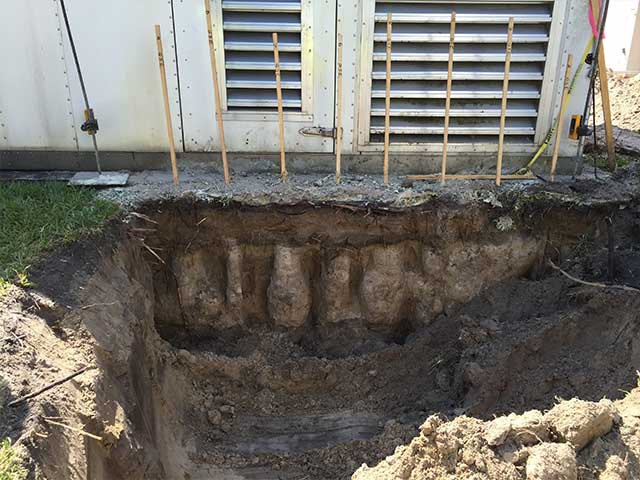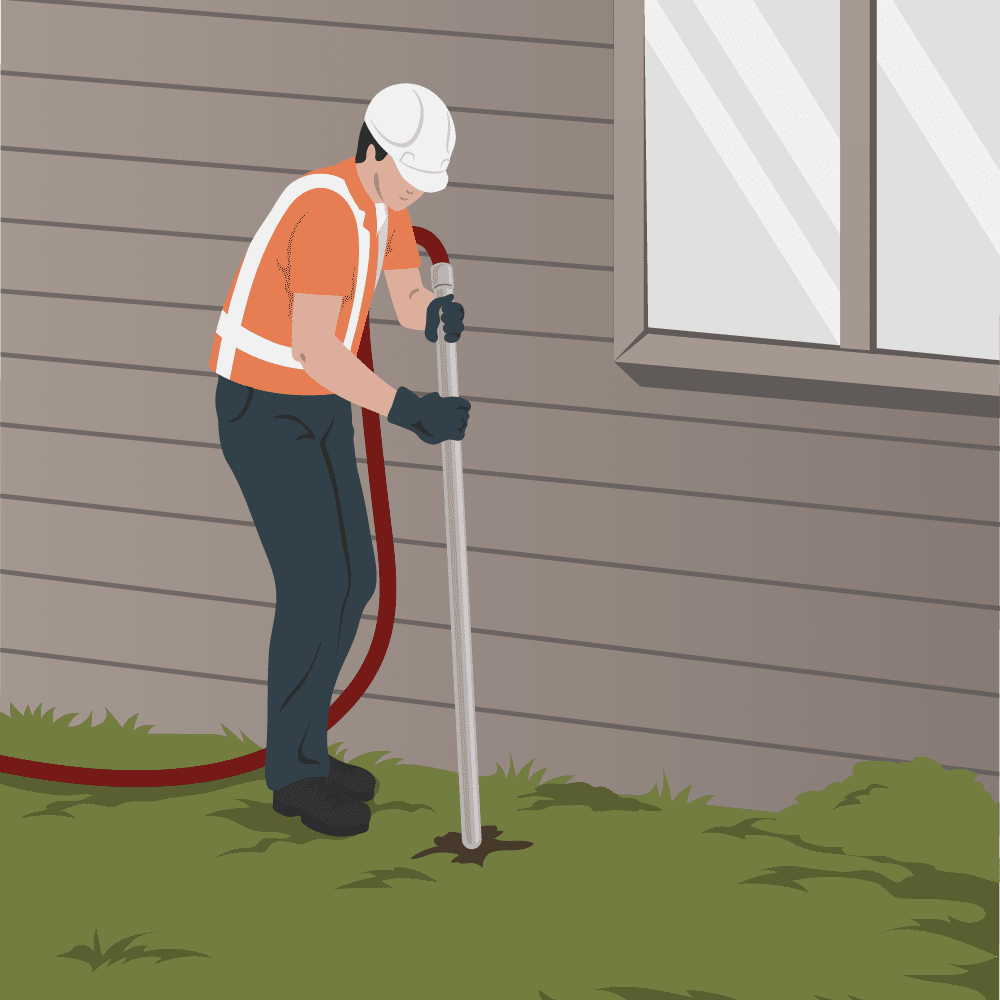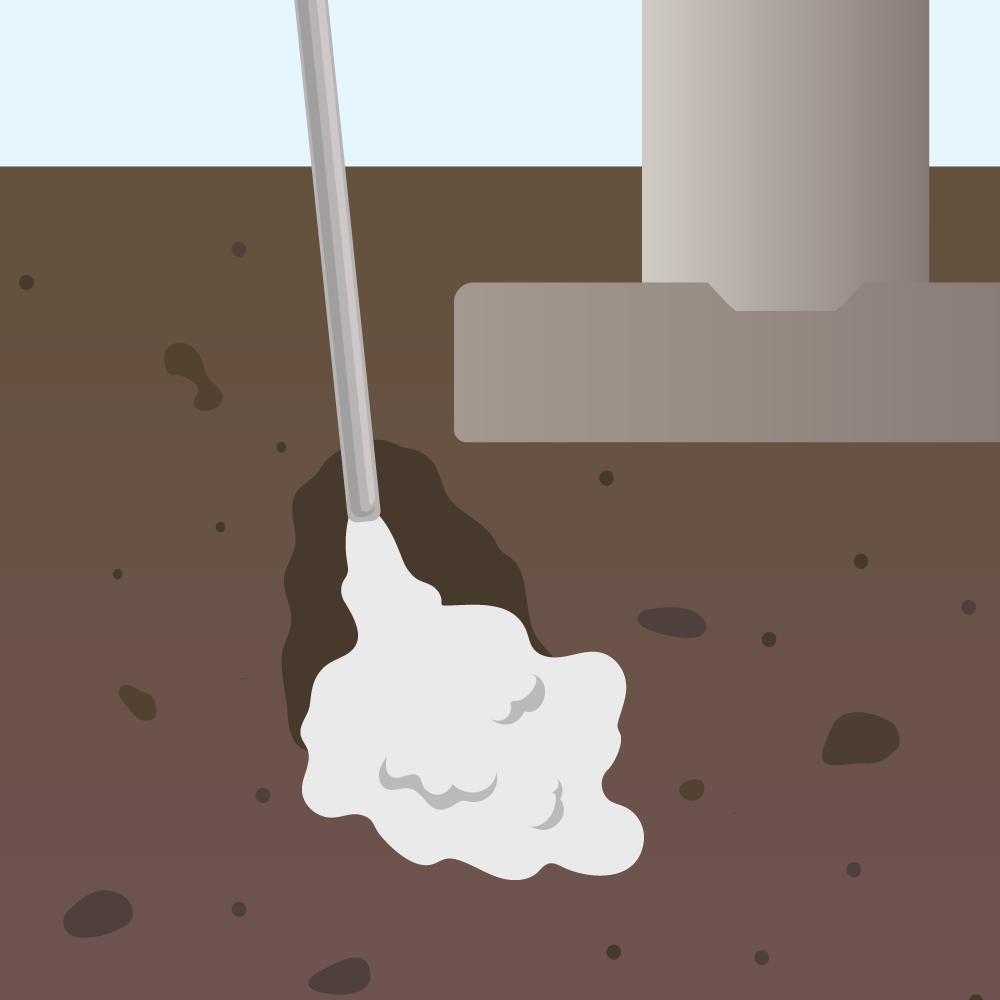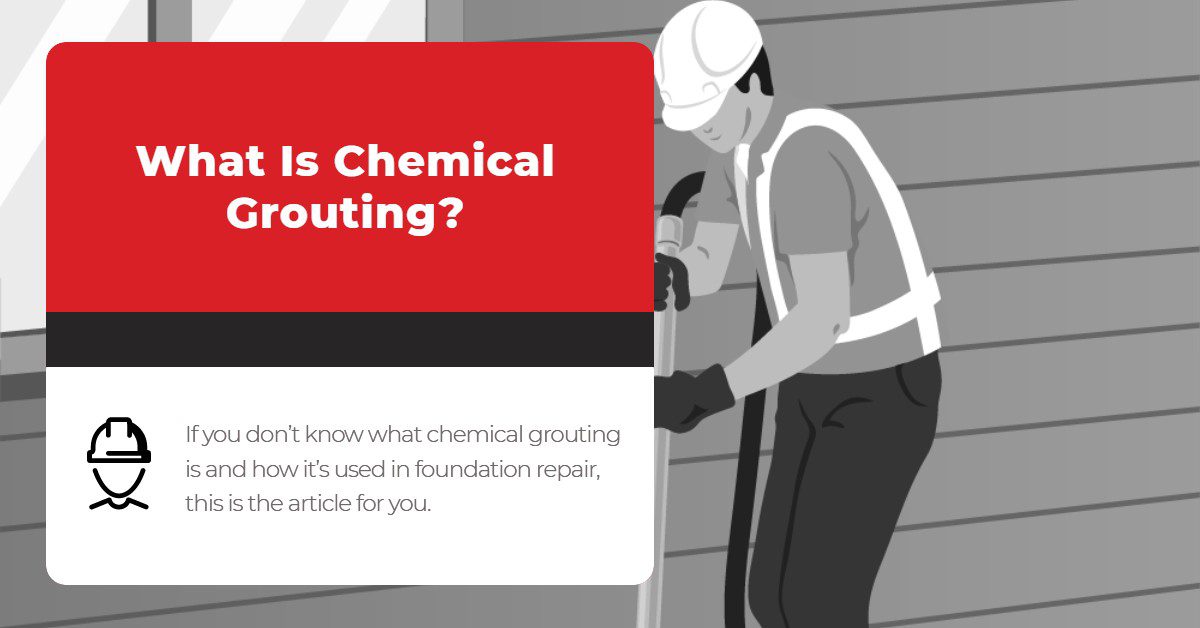If you don’t know what chemical grouting is and how it’s used in foundation repair, this is the article for you. Chemical grouting isn’t a well-known foundation repair solution, but many different companies still use it. If a foundation repair contractor says your home needs chemical grouting, you should know what to expect before they start working.
What Is Chemical Grouting?
Chemical grouting is when a low-viscosity (thickness) grout is injected into loose soil or rock to fill voids, creating a stronger cemented mass. Also called permeation grouting, cement grouting, or pressure grouting, chemical grouting has been used by foundation repair professionals since the late 1930s, brought into the U.S. during the 1980s. Chemical grouting is perfect for coastal regions with unstable and sand-filled soil, such as Florida.
Chemical grouting is the perfect solution for foundations with limited space and when no structural connection is required. This process can provide excavation support and underpinning without disrupting normal facility operations. If a structural connection to your foundation is required, most professionals use steel push piers or helical piers.

How It Works
Here’s the typical chemical grouting process.
- A hole is drilled into the ground near your foundation.
- A sleeve port pipe is placed in the hole. This pipe has special sleeves wrapped around holes that allow the grout to spread evenly into the soil around it.
- The grout (made of either Portland cement, microfine cement, sodium silicate, acrylate, or polyurethane) is injected into the port pipe, hardening and spreading throughout the soil, creating a sandstone-like mass.
- The pipe is removed, leaving behind stronger and more stabilized soil.
Common Uses Of Chemical Grouting
There are two main uses of chemical grouting: structural and water control.
- Structural grouting – Structural grouting is mainly used in soils that contain gravel, sand, or silt (coarse-grained soil) with little or no clay content. This process permeates the spaces between the soil particles, binds the dirt together, and improves the ground’s bearing capacity. Structural grouting can also be used to repair fractures in concrete or rock. For this process, professionals use a non-expanding grout.
- Water control – This form of chemical grouting is mainly used to stop water movement in granular soil or rock. When done correctly, this process can create an underground curtain that prevents water from moving into an area of soil. Water control chemical grouting is also widely used to stop leaks in dams, mines, tunnels, underground tanks, elevator shafts, and around underground conduits or pipes. For this process, professionals use an expanding chemical grout.

Advantages Of Chemical Grouting
Here are a few reasons why foundation repair professionals choose chemical grouting over other soil stabilization solutions.
- Cost-efficient – Instead of removing and replacing weak soil entirely, professionals can use chemical grouting to improve what you already have. This process is faster, saving companies on labor and equipment costs.
- Easy access and flexibility – Excavators and other heavy machines typically used in soil stabilization can take up too much space, making it difficult to access certain smaller properties. Chemical grouting machines are much smaller and come in various forms, ranging from hand-held to large-diameter pneumatic pumps.
- Minimal noise and property disruption – Chemical grouting machines are not as loud as bulldozers or excavators, avoiding the common noise disturbance that comes with construction or foundation work. Chemical grouting can also be completed without disrupting everyday work or home life.
Types Of Chemical Grouting Machines
Here are some of the most common types of chemical grouting machines.
- Hand-held pumps – Hand-held pumps are mainly used for minor spot repairs. They’re portable, use hand-operated levers, and are equipped with an easy-to-use cartridge system. These pumps are used by contractors looking for a straightforward grouting solution.
- Small-volume pumps – For bigger projects involving crack injection, joint repairs, and water cut-off, these small-volume pumps use an electric piston to inject the grout into soil or rock. These pumps have also been used with underwater ROVs (remotely operated vehicles) to deliver grouting near the ocean floor.
- Large-volume pumps – This type of chemical grouting uses large-diameter pneumatic pumps that are able to deliver tremendous amounts of grout. These pumps typically use water-activated urethane grouts and pre-mixed, slow-curing chemical grouts.
- Two-component pumps – These pumps are used in conjunction with fast-curing chemical grouts and use a hose system that delivers two separate components as it injects into the soil. These pumps usually use two-component epoxy resins, urethane, polyol resin, acrylates, acrylamides, and silicates.

Who Offers Chemical Grouting Near Me?
If you live in the Southeastern United States and need a foundation repair solution that works, call Foundation Professionals Of Florida. Since 2012, we’ve been serving Florida, Georgia, Alabama, Mississippi, South Carolina, North Carolina, Tennessee, Kentucky, Virginia, the Virgin Islands, and the Florida Keys. Call today for your free inspection and estimate.

